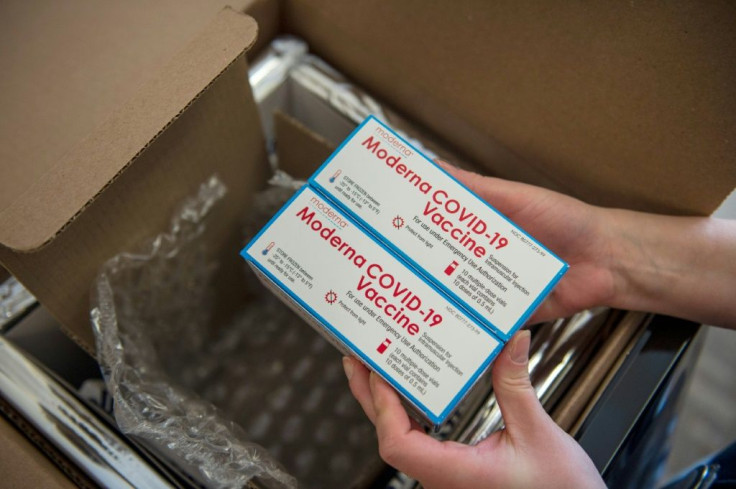How States Are Coping With Vaccination Issues As Hospitals' ICUs Overflow
KEY POINTS
- Florida looks to grocery stores to help with vaccination
- Fauci says nation is moving past the learning curve
- U.S. set a record for COVID-19 hospitalizations
With hospitalization rates soaring at a frightening clip, U.S. governors are scrambling to move up their vaccination campaigns by expanding eligibility while at the same time working to ensure adequate supplies.
The Centers for Disease Control and Prevention estimates about 25% of the vaccines in distribution have been delivered so far this year. The slow pace of inoculation has been attributed to a lack of federal oversight, supply-side issues stemming from the busy holiday season and apprehension from the public.
New York Gov. Andrew Cuomo this week said the daily vaccination rate for hospital staff, a top priority, was around 10,000 per day. On vaccinating the rest of the state, the governor said he was leaning on the federal government to fill what he said was a supply gap, but suggested much of that was out of his hands.
"I can't say to my mother or to any New Yorker right now how long until we know what the supply actually is going to be, and we talk to everyone all day long," the governor said during a Wednesday press conference. "As soon as we have a more definitive answer I will tell you."
A tally from the Reuters news service put the number of patients in U.S. hospitals for complications from COVID-19 at 130,384 as of late Tuesday, a new record. The average daily death count was 3,684, the second-highest level since the pandemic began in early 2020.
On Tuesday, Florida Gov. Ron DeSantis described how his state was trying to boost inoculations. State agencies, he said, were teaming up with the Publix supermarket chain to help with the vaccination effort. The retailer has some 15,000 doses of the Moderna vaccine against COVID-19 that it would distribute by appointment only at 22 select outlets starting Friday.
In Michigan, Gov. Gretchen Whitmer expanded the state's vaccination campaign earlier this week to include teachers and first responders. State health officials said Michigan is in the top five when it comes to the percentage of the population vaccinated so far, adding they were actually doing better than CDC numbers would indicate.
State officials in early January said they would open the University of Michigan's football stadium, a 100,000-seat facility dubbed The Big House, as a vaccination center with a goal of vaccinating some 2,000 people per day. Grocery chain Kroger is among the handful of retailers helping to drive the vaccination campaign in Michigan.
In California, where hospitalizations jumped 17% over the last two weeks, health officials said they were working to counter waste, noting the complications of using vaccines before they go bad. For the Pfizer-BioNTech vaccine, state officials said the vials need to be cleared within six hours of opening them for use.
Like Michigan, California expanded its vaccination campaign to include residents ages 50 and above, while other states are still waiting to fully vaccinate their eldest citizens.
On Tuesday, however, Dr. Anthony Fauci, the top infectious disease expert in the country, said the inoculation campaign was overcoming its earlier hurdles.
“Any time you start a big program, there’s always glitches,” he told the Associated Press. “I think the glitches have been worked out.”
His comments followed advice from the Food and Drug Administration, which is tasked with approving drugs for public use, to stick with the dosage recommendations rather than inject as many people as possible with the initial dose.
“We know that some of these discussions about changing the dosing schedule or dose are based on a belief that changing the dose or dosing schedule can help get more vaccine to the public faster,” his statement from Monday read. “However, making such changes that are not supported by adequate scientific evidence may ultimately be counterproductive to public health.”
The FDA said data show the reported efficacy rates of both vaccines hold only if the correct dose interval is followed. For Pfizer-BioNtech, the second shot needs to come 21 days after the first. For Moderna, the interval is 28 days.

© Copyright IBTimes 2024. All rights reserved.





















